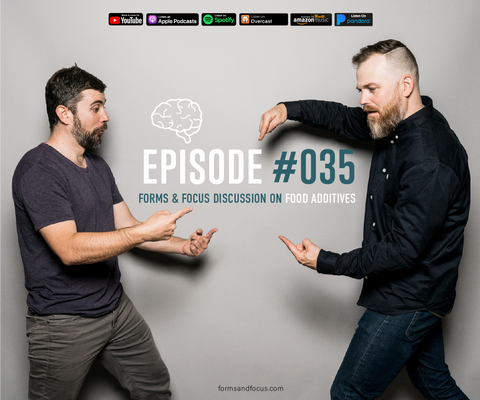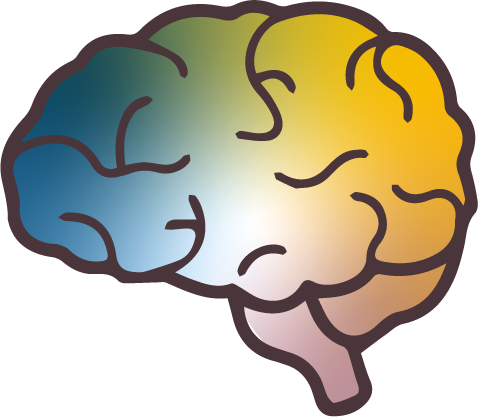
#35 Forms and Focus Discussion on Food Additives
THE BRAIN AND THE GUT ARE BESTIES
The brain and the gut are besties. It is why you feel like shit when you eat like shit. Much of our food today is filled with all kinds of additives which are clouding our brains causing brain fog, chronic fatigue, depression, lack of motivation and more. Today we are going to talk about the brain and the gut, food additives that are affecting our brain and some simple steps we can take to limit processed foods and increase our focus. Let’s dig in…
0:00 Intro to Food Additives and Focus
0:42 Intro to Podcast
1:00 Problem with Food Additives and Focus
12:10 Solution to Increase Focus
LISTEN TO EPISODE
WATCH EPISODE
SHOW NOTES #35
The Brain and The Gut
Elo.health: The best (and worst) foods to eat for focus
“Research studies have shown that your gut and brain are in constant communication with each other via chemicals called neurotransmitters, which are produced in the brain and control feelings and emotions (like serotonin).”
“Your gut microbes also produce a neurotransmitter called gamma-aminobutyric acid (GABA)and short-chain fatty acids (SCFA) such as butyrate, propionate, and acetate, all of which are thought to impact various brain functions including mood, fear, and stress..”
Processed Foods: Sugar, Salt, Fat and Additives
Additives…
MSG: https://www.mdlinx.com/ MSG is the salt form of glutamate, or glutamic acid. The body naturally produces glutamate when needed to trigger cell death. Too much dietary glutamate, however, can severely disrupt normal cellular function, particularly in the brain.
Artificial Food Coloring: Cleveland Clinic: Hyperactivity, including ADHD. Behavioral changes like irritability and depression. Hives and asthma. Tumor growth (three of the primary food dyes contain benzene, a known cancer-causing substance).
High-Fructose Corn Syrup: UCLA Health: Previous research led by Gomez-Pinilla found that fructose damages communication between brain cells and increases toxic molecules in the brain; and that a long-term high-fructose diet diminishes the brain’s ability to learn and remember information.
Artificial Sweeteners: National Library of Medicine. Aspartame (α-aspartyl-l-phenylalanine-o-methyl ester), an artificial sweetener, has been linked to behavioral and cognitive problems. Possible neurophysiological symptoms include learning problems, headache, seizure, migraines, irritable moods, anxiety, depression, and insomnia.
Artificial Flavoring: MDLinx. Cysteine is an amino acid and food additive that’s used to extend the shelf life of bread and other food products. It’s also used as an artificial flavoring agent. Now for the gross part: Cysteine is created via hydrolysis of human hair and poultry feathers (as well as cow horns and pig bristles). Even worse: High cysteine levels have been associated with the development of neurological disease, including Parkinson disease and Alzheimer disease. So, you might want to think twice when walking down the bread aisle of your local supermarket.
Carrageenan, Sodium Benzoate, Trans Fat, Xanthan Gum, Yeast Extract
Effects of Processed Foods on the Focus
Brain Fog
Chronic Fatigue
Depression
What can we do?
Atomic Habits
Look at what you consume
Purge your diet of processed foods
Use apps to help read labels if you need it:
Fooducate: Fooducate analyzes information found in product nutrition panels and ingredient lists. Scan to discover things manufacturers don't want you to notice:
Locavore: Locavore helps you find the healthiest, tastiest and freshest produce near you.
FIND US AT
https://formsandfocus.com/
https://www.instagram.com/formsandfocus/
https://www.tiktok.com/@formsandfocus
#focus #dream #foodadditives

Comments (0)
There are no comments for this article. Be the first one to leave a message!